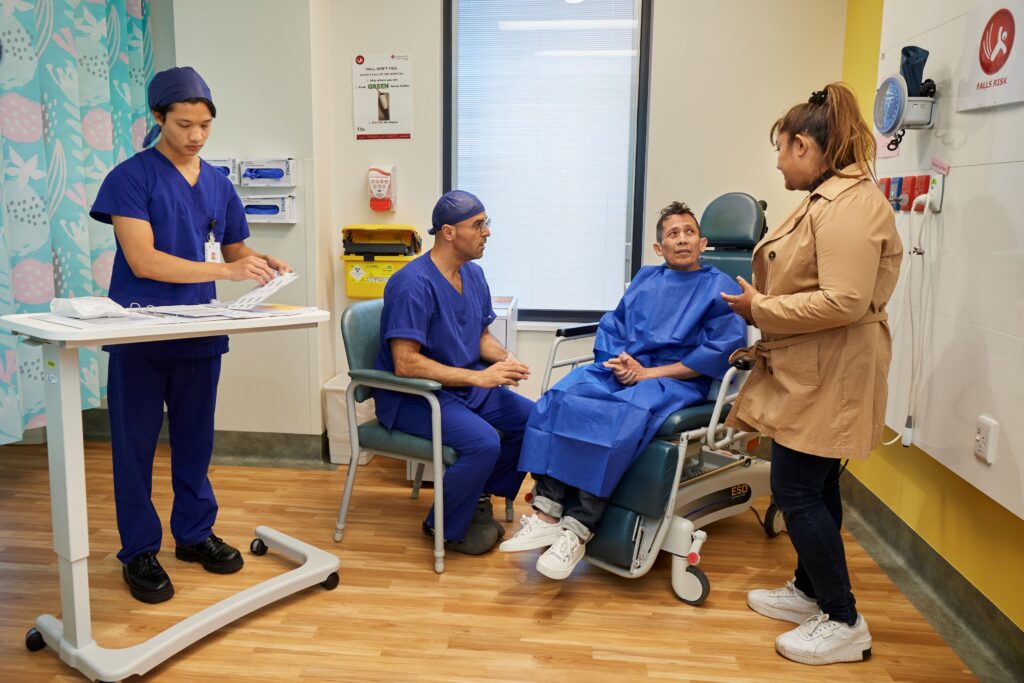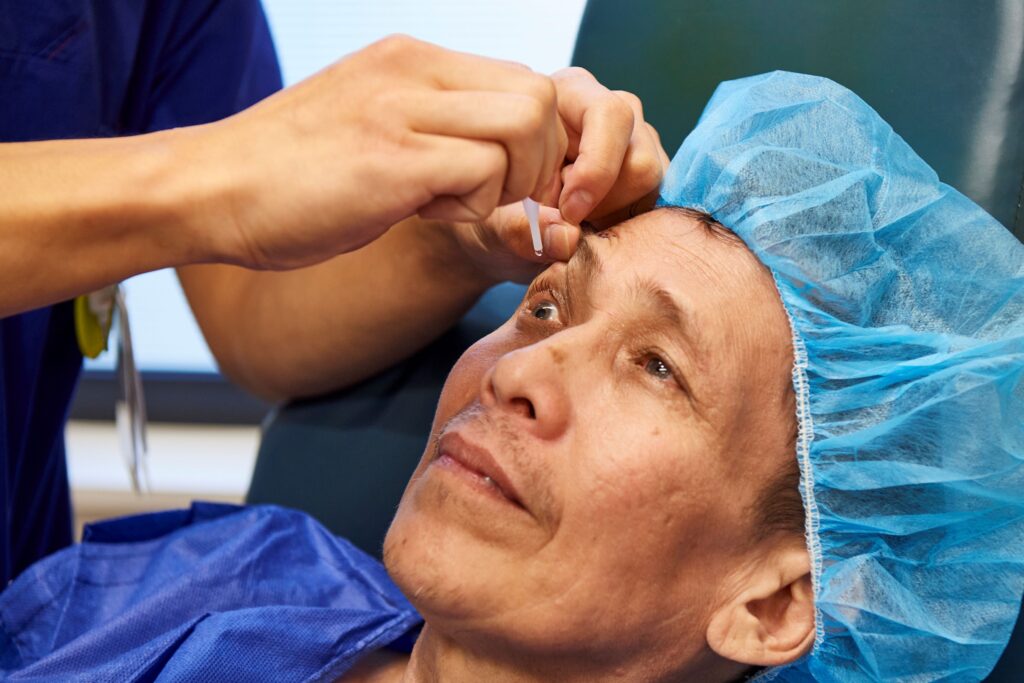Led by Dr Marcel Nejatian and A/Prof Hessom Razavi, Lions Eye Institute – AU$50,000
Indigenous Australians, refugees, and asylum seekers experience high rates of vision loss, largely preventable with improved access to care. In Perth, their access to public ophthalmology services is limited by prolonged wait times and cultural, linguistic, and geographical barriers. Despite the existence of viable strategies to enhance their access, these solutions remain under-utilised and under-assessed in urban settings.
Enter Lions InReach Vision (LIV), a recently established eye care service under the Lions Eye Institute, tailored to these communities. LIV employs a collaborative care model, featuring an ophthalmologist, optometrist, and ophthalmology registrar working together to offer a comprehensive service, encompassing refraction, ophthalmic consultation and treatment, and surgeries. LIV aspires to bridge the eye care gap for Indigenous, refugee, and asylum seeker populations in this urban setting by providing a service which meets their specific needs and improves their overall eye health.

Ricky, a refugee from Myanmar, attending St John of God (SJOG) Midland Hospital for surgery with A/Prof Hessom Razavi and the collaborative team, following consultation with the LIV service at the Lions Eye Institute clinic in Midland. (Image courtesy of Lions Eye Institute – photo credit Frances Andrijich)
This project involves a trial expansion of LIV over 114 weeks through quadrupling the clinic frequency and implementing other strategies to improve its accessibility and cultural safety. These include doubling the hours of a Patient Liaison Officer to enhance support, advocacy and cultural safety for patients, patient transport assistance, and forming separate Aboriginal and Refugee Patient Reference Groups comprising local health professionals and community members. This community input will guide the project’s expansion, evaluation, and implementation of other suggested strategies to improve LIV’s accessibility. A research component will quantitatively and qualitatively evaluate the effectiveness of the service expansion, build on the limited data on the eye health of urban Indigenous, refugee, and asylum seeker populations, and investigate ongoing barriers these populations experience accessing care, along with potential solutions to these.

Ricky, a refugee from Myanmar, attending St John of God (SJOG) Midland Hospital for surgery with LIV ophthalmologist, A/Prof Hessom Razavi. (Image courtesy of Lions Eye Institute – photo credit Frances Andrijich)
If the project proves successful and secures government funding for further expansion, the service’s eligibility criteria will be broadened to include additional vulnerable populations. These could encompass individuals with disabilities, mental health challenges, homelessness, low-income individuals receiving government support, and elderly residents in aged care facilities.
ANZEF is the philanthropic arm of the Royal Australian and New Zealand College of Ophthalmologists (RANZCO).
RANZCO is a registered charity with the Australian Charities and Not-for-profits Commission (ACNC) Charities Services in New Zealand (registration no: CC53935).
Charity donations to ANZEF of $2 or more in Australia and $5 or more in New Zealand are tax-deductible.
ANZEF acknowledges and pays respect to the Traditional Owners of the lands and waters throughout the world, and to their Elders and ancestors, past and present.
© 2022 Web design and development by Marketing Media